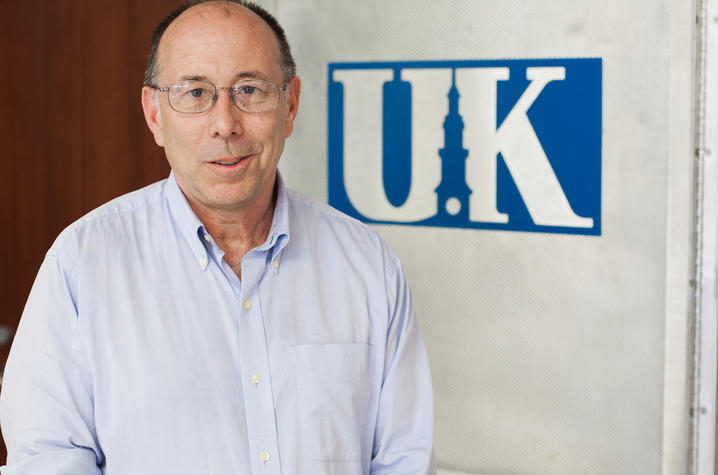By Tiffany Molina and Gail Hairston
 The connection between two neurons in the brain has been an intriguing topic to Robin Cooper, associate professor in the College of Arts and Sciences at the University of Kentucky. Cooper has been at UK for 21 years teaching his true passion: synaptic transmissions. Cooper said he loves it so much that he “often goes on tangents” and has to be reminded by his students to stay on track during lectures.
The connection between two neurons in the brain has been an intriguing topic to Robin Cooper, associate professor in the College of Arts and Sciences at the University of Kentucky. Cooper has been at UK for 21 years teaching his true passion: synaptic transmissions. Cooper said he loves it so much that he “often goes on tangents” and has to be reminded by his students to stay on track during lectures.
When he came to Kentucky, Cooper said he noticed there was a need for outreach to the younger community. He started a regional science fair program for young middle and high school students with an interest in science. The program, which has been running for 12 years, has been a success.
“Working with the teachers and students for the science fairs, got us more involved in education,” Cooper said. “Then, I got involved with the College of Education at UK, and we’ve been working on grants together as well as training programs for teachers.”
The outreach to Kentucky students began to reach beyond the state’s borders and even outside the U.S. “An exchange student from Germany, who was part of the program Deutscher Akademischer Austasch Dienst (DAAD), took our model of teaching neurobiology and the role of neurotransmitters to a conference in Germany. Scientists there wanted to use our model. It was a way to reach students and teach in a fun way,” Cooper said.
Another of Cooper’s students, Zana Majeed, finished his doctorate degree at UK and is now in Iraq teaching a neurobiology course using the educational tools he helped develop here. Both Cooper and Majeed wanted to be able to collaborate even with the distance limitation. Cooper decided to involve UK’s STEMCats, a program to involve freshmen in science in the collaboration. Cooper explained that since the same technology and equipment is not available in Iraq, students at UK run the laboratory tests and then the analysis is done by the students at Salahaaddin University- Erbil in Iraq. “Through this collaboration, students realize there are many different ways to analyze data- sometimes we need to peer review a lot to find the best approach,” Cooper said.
With the realization that other countries were interested in the educational tools being used in his laboratory, Cooper started a project called Citizen Science. “The idea for Citizen Science began as ‘science without borders’,” Cooper explained. “I wanted something that regardless of your political views or your country, we could all come together with our passion for science.”
Citizen Science provides a platform for students and faculty interested in neurobiology to discuss and bounce back their different ideas and research. The Citizen Science project works in a mentorship style program, with undergraduate and graduate students leading the discussions and high school students being able to engage and participate. UK faculty and faculty from other universities, such as the University of Louisville, have also become involved. Cooper hopes that these types of programs engage those interested in science more, and involve them in conversations with people that might possibly be on the other side of the world, but are intrigued by the same subject.
By networking and attending neuroscience conferences around the world, Cooper said he realized that “sometimes in science, we come up with an idea and think about it in a certain way, but by talking to people, you realize that there might be another, possibly better way.”
UK is the University for Kentucky. At UK, we are educating more students, treating more patients with complex illnesses and conducting more research and service than at any time in our 150-year history. To read more about the UK story and how you can support continued investment in your university and the Commonwealth, go to: uky.edu/uk4ky. #uk4ky #seeblue
